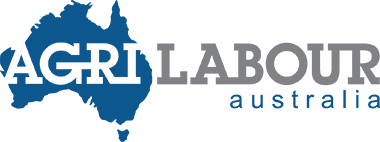Welcome to Australia, the land of opportunity and adventure! As you embark on your journey with Agri Labour Australia, it’s important to ensure that you are set up to manage your finances, starting with a bank account.
Opening a bank account in Australia is a straightforward process, but it helps to be prepared and aware of the necessary steps and requirements. Below, we’ve provided a comprehensive guide to setting up a bank account, including the documents you’ll need, potential challenges you may face, and helpful solutions to make the process smooth and hassle-free.
Types of Bank Accounts
Before diving into the process, it’s essential to understand the different types of bank accounts available in Australia. The most common options include transaction accounts, savings accounts, and term deposits. Each account serves a specific purpose, so it’s important to choose the one that best suits your needs and financial goals.
Choosing a Bank
Australia has several reputable banks, and the choice of which one to opt for largely depends on personal preference and convenience. Some popular banks include Commonwealth Bank of Australia, Westpac, ANZ, and National Australia Bank, just to name a few. You may also find a location specific Credit Union which could be a good consideration from the major 4 “big” banks. Consider factors such as branch accessibility, online banking services, fees, and customer reviews when selecting a bank that aligns with your requirements.
Required Documentation
To open a bank account in Australia, you’ll need to provide certain documents for identification and verification purposes. These typically include:
- Passport: A valid passport is essential to establish your identity as a non-resident.
- Visa: Depending on your visa type, you may need to provide additional documents such as a valid work visa or working holiday visa.
- Proof of Address: Banks may require proof of your residential address in Australia, such as a rental agreement or utility bill in your name.
- Tax File Number (TFN): While not mandatory, providing your TFN can help ensure that you’re taxed correctly on your income.
Potential Challenges and Solutions
While opening a bank account is generally a straightforward process, there are a few challenges you might encounter along the way. Here are some common issues and their respective solutions:
- Lack of Australian Address: If you don’t have a permanent address in Australia, you can use the address of your employer or a trusted friend or family member. Many banks also offer options for temporary or mailing addresses.
- Limited Identification Documents: If you’re unable to provide certain identification documents, such as a passport, reach out to the bank and explain your situation. They may have alternative solutions or acceptable substitutes for identification purposes.
- Language Barriers: If English is not your first language and you encounter difficulties during the application process, consider seeking assistance from a bilingual friend, coworker, or interpreter. Alternatively, some banks offer multilingual customer service support to help guide you through the process. You may be able to access these via their phone services.
Additional Banking Services
Aside from basic transactional banking, Australian banks offer a range of additional services to enhance your financial management experience. These may include internet banking, mobile banking apps, debit cards, and the ability to transfer money internationally.
Budgeting and Saving Tips
As a candidate working in regional Australia, it’s essential to manage your finances wisely and make the most of your income. Here are a few budgeting and saving tips to help you along the way:
- Create a budget: Track your income and expenses to gain a clear understanding of your financial situation. This will help you allocate funds appropriately and save for future goals.
- Minimise unnecessary expenses: Identify areas where you can cut back on expenses, such as eating out or non-essential subscriptions. Small adjustments can add up to significant savings.






